It’s every impresario’s dream. Buy a little off-West End venue to try out stuff for fun. Andrew Lloyd Webber has snaffled up the St James Theatre (rebranded The Other Palace), which he intends to run as a warm-up track for new musicals. First off the blocks The Wild Party, a New York import set in the 1920s. We meet a couple of vaudeville veterans, Queenie and Burrs, whose romance has hit the rocks. To rekindle the flame they invite everyone they know around for a party. Hang on. A party? Booze, drugs, flirtation, seduction: the recipe for destroying a romance, not salvaging it. But never mind. The guests have started to arrive, direct from the Scott and Zelda Tribute Society. Everyone is talented, sophisticated and glamorously tragic. There’s an out-of-work diva, a washed-up boxer, a needy movie star on the rise, a gigolo named Black who only wears white and never says a word, and a pair of singing teenagers who may or may not be transvestites. Add a troupe of high-kicking flappers who specialise in collapsing on to sofas while giggling hysterically and your line-up of Jazz Age clichés is complete.
The lethargic plot involves an adulterous liaison and the shooting of somebody or other. This is a classy and no doubt costly production. The tunes, the rhythms and the visual stylings brilliantly capture the atmosphere of the 1920s. But it’s hard to care about these grasping, shallow hedonistic characters and their misguided search for contentment at an orgiastic drug binge. There’s a pumped-up energy here but it feels tired, melancholy, and even, dare I say it, hard work.
A new Twelfth Night at the National. Yes, another one. The convoluted plot with its endless cross-dressing permutations doesn’t just defy logic or subvert reason, it causes drowsiness. Simon Godwin’s production casts Tamsin Greig as the despotic puritan Malvolio and transforms him with an ink-speck into Malvolia. And it works because it goes with the general drift of the nonsense. The lonesome Olivia runs her court like a lesbian collective so it’s understandable that she should hire a lady butler with Sapphic leanings.
Tamsin Greig puts in a performance that isn’t just a dazzling piece of Shakespearean interpretation, it’s also a wonderful piece of Tamsin Greig. She plays Malvolia as a shrewd, calculating miserablist who rules her demesne with mysterious graces, tiptoeing around her opponents and lancing them with indecipherable stares. She’s dressed in black, top to toe, offering a gentle nod to Mrs Danvers. Her pageboy hairdo has a low fringe and puffy spaniel’s ears which carry a hint, but only a hint, of the ridiculous. And she wears one of those massively flared pairs of trousers that resemble a dress when the wearer is in repose. This sartorial gag (even the costumes are ambiguously gendered) is typical of the show’s subtle humour. Greig’s natural warmth and softness cut against the character’s pitiless exterior, and remind us that Malvolia is not a malign character, just a disappointed one. It’s a performance of rare sympathy and exceptional comic power.
Doon Mackichan matches her for originality and converts Feste into a witty, evergreen hippie-chick. Phoebe Fox (Olivia) evokes the stroppy queenliness of Bette Davis. And then there’s Sir Toby Belch. This is a problem role that is never regarded as a problem role but as ‘a glorious comic creation’. Which is the problem. It’s an elephant trap for laughter-chasers. The part is long, unwieldy and lacking in development. Drunken jinks are funny enough but only for a moment and Sir Toby needs further layers and other motives. Velvet-voiced smoothie Tim McMullan has reinvented Sir Toby as an ageing hedonist who approaches pleasure with deep seriousness. Styled like Ronnie Wood, he lopes and shimmies around the stage in snake-hipped jeans and stacked boots, shirt ripped open, his elegant silk jacket hinting at a long acquaintance with opulent debauchery. His dark hairdo is carefully cut and combed, and these niceties give him the air of a successful womaniser rather than just a boozy old derelict. You can sense a limousine standing at the kerb outside.
Sir Andrew Aguecheek by contrast is a failure because he just looks silly. He knots his long hair up into a bun like an anarchist spring-cleaning the squat. And his garish pink suit, with its boxy blue highlights, belongs on a kids TV show rather than in this grown-up world of conspiracy, courtship and seduction.
This triumphant version by Simon Godwin includes an invented bedroom scene, coldly lit and wonderfully spare. There are no words. Olivia is revealed asleep with Malvolia in attendance, simmering with desire, stooping over her ladyship but fearing to touch what she longs to possess. I’ve never enjoyed this play but I doubt if I’ll ever see a production done with such intelligence and panache.
Got something to add? Join the discussion and comment below.
Get 10 issues for just $10
Subscribe to The Spectator Australia today for the next 10 magazine issues, plus full online access, for just $10.

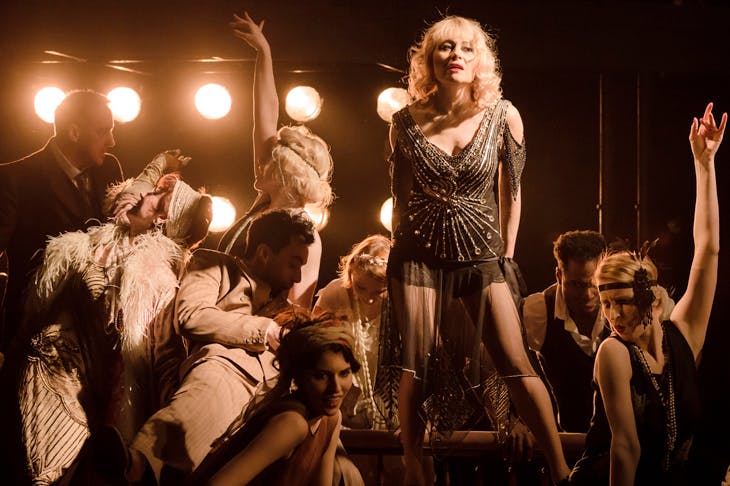
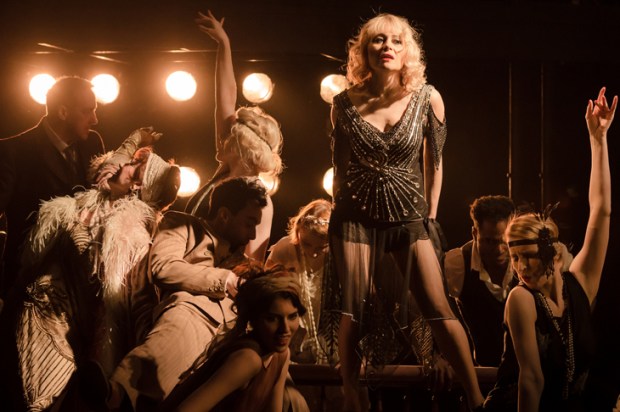
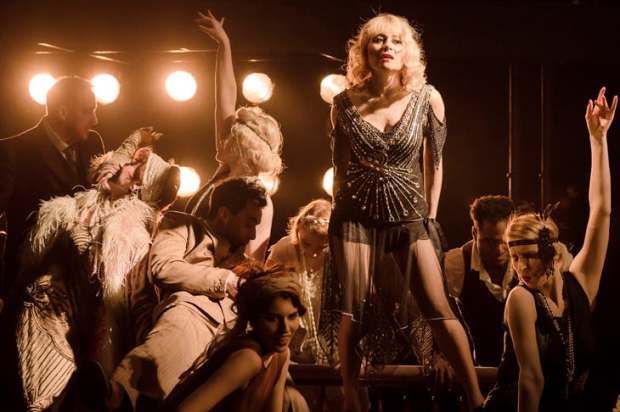


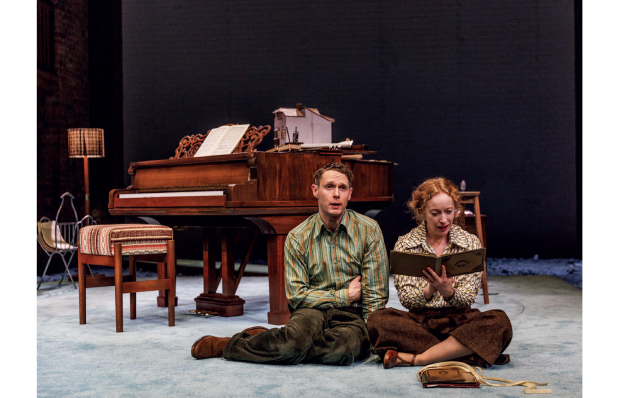
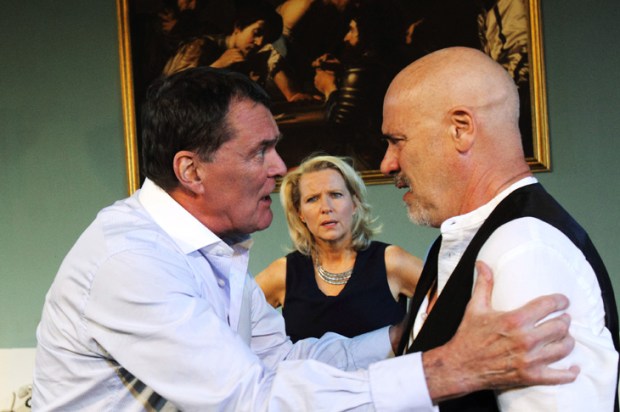






Comments
Don't miss out
Join the conversation with other Spectator Australia readers. Subscribe to leave a comment.
SUBSCRIBEAlready a subscriber? Log in